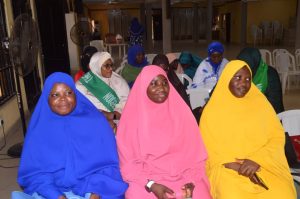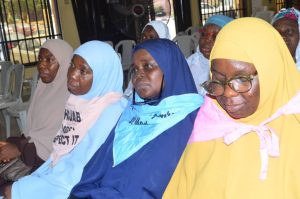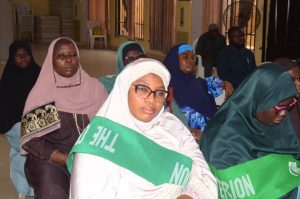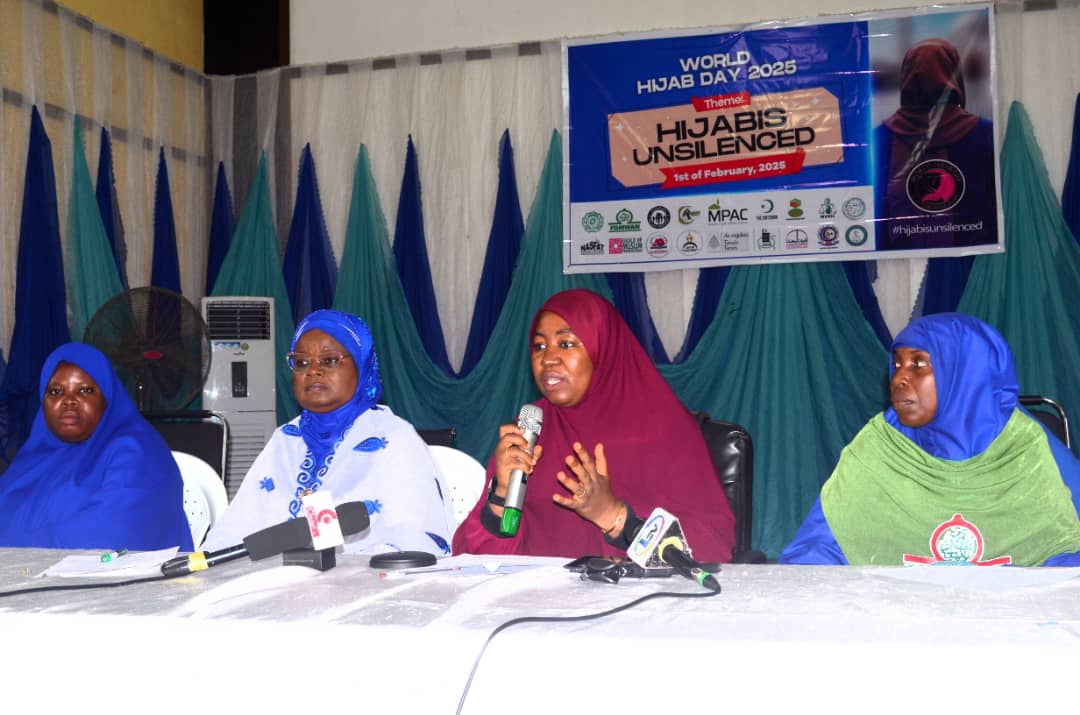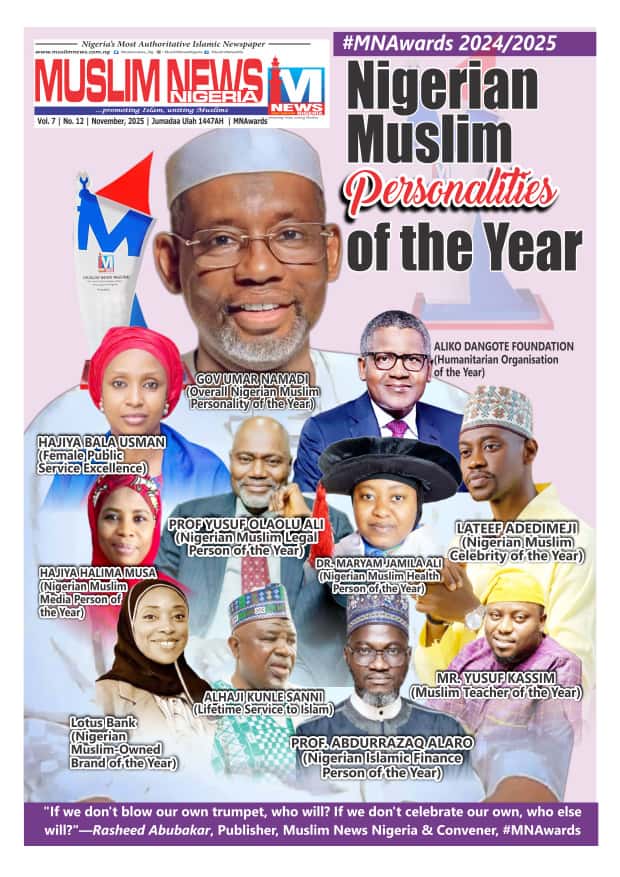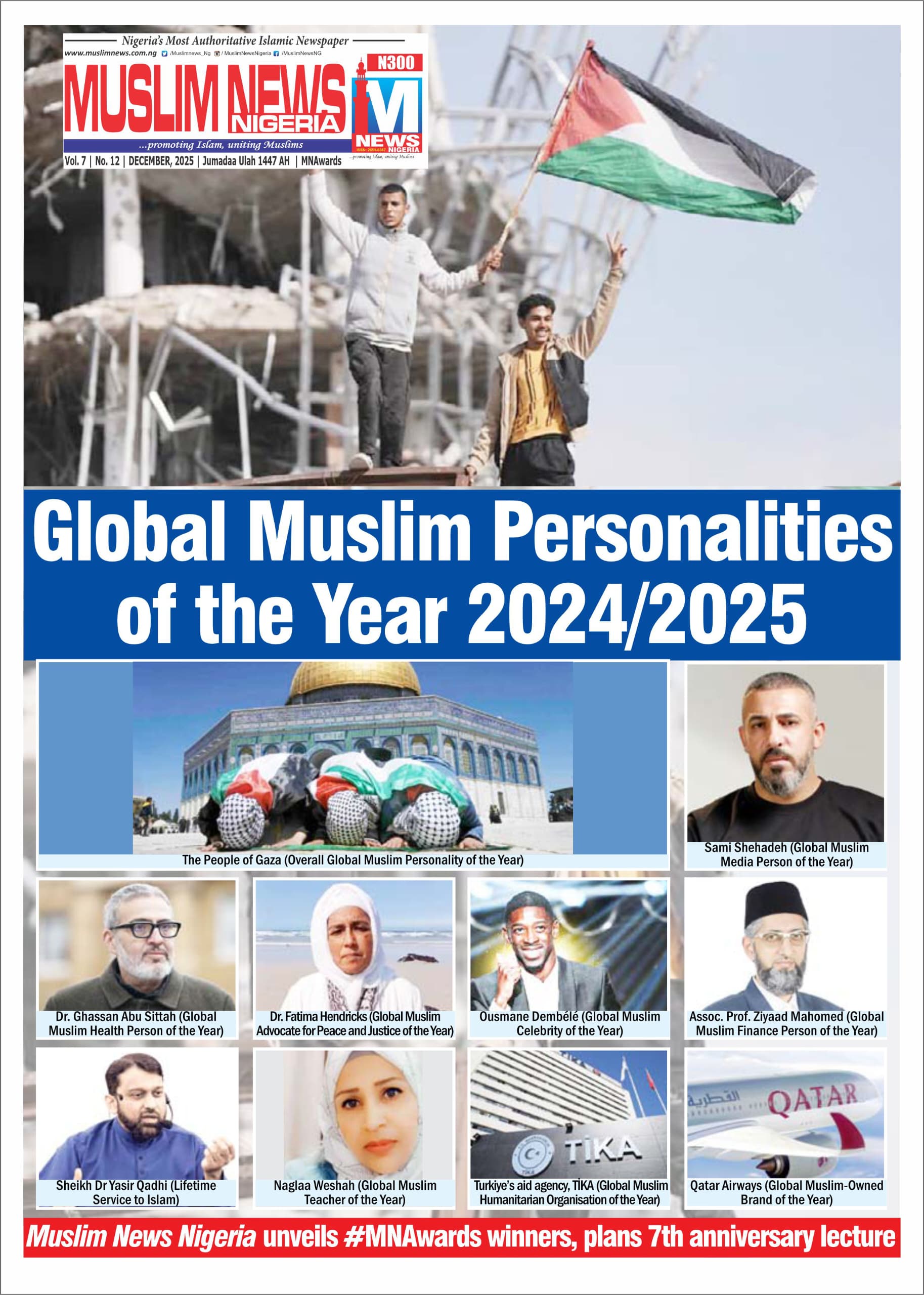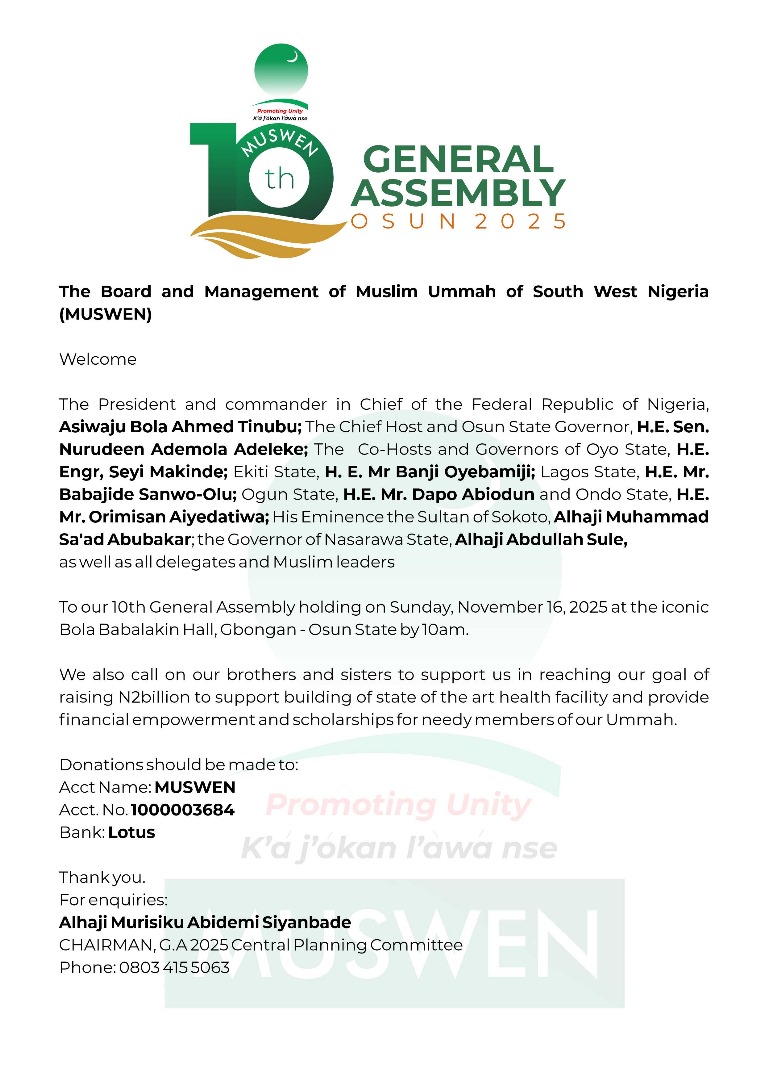* Say Hijabis are symbol of faith, resilience, identity, empowerment
* Highlight challenges faced by Musim women in schools, workplaces
Nigerian women under the aegis of Coalition of Muslim Women Groups in Nigeria have again joined millions of other women across the globe to commemorate the 2025 World Hijab Day, themed “Hijabis Unsilenced”.
The group, comprising 18 Muslim bodies said the annual event provides an important platform for raising awareness about the hijab as a symbol of faith, identity, and empowerment, while addressing the persistent challenges faced by Muslim women in Nigeria.
The convener, Hajia Mutiat Orolu-Balogun of the Hijab Rights Advocacy Initiative, HRAI stated this at the World Press Conference held on Wednesday, 29th January at the Alausa Secretariat Mosque, Lagos.
The annual event will climax on Saturday, 1st February with a walk that will start from Allen Roundabout, Ikeja and end at the Lagos Secretariat Mosque Alausa, Ikeja.
Muslim News gathered that since inception, the World Hijab Day has been a movement that champions freedom of thought, conscience and religion, and the rights of Muslim women to practice their faith without discrimination.
This year’s theme amplifies the voices of Muslim women who have long been marginalized, mistreated and faced discrimination because of their religious dress.
In Nigeria, where religious pluralism should be celebrated, Muslim women continue to face structural, legal, and social challenges that undermine their rights and dignity.
Hijab isn’t only cultural but legislation from God: Convener
Hajia Orolu-Balogun argued that while hijab may be a form of cultural identity for some, it remains a legislation from God, in accordance with Surah 33:59 and 7:26 of the Noble Qur’an where Allah commanded the believing women to wear the hijab.
“It is neither an Arabian culture, nor is it a fashion accessory that may be discarded at will,”
Addressing the media and members of the coalition who graced the briefing adorning varying forms of hijab, Hajia Orolu-Balogun, a varsity lecturer, said, “Hijab is also protected by our laws.”
She cited several portions of the Nigerian constitutional provisions and judiciary pronouncements backing the use of hijab, such as Sections 38 and 42 which read:
“Every person shall be entitled to freedom of thought, conscience and religion, including freedom to change his religion or belief, and freedom (either alone or in community with others, and in public or in private) to manifest and propagate his religion or belief in worship, teaching, practice and observance (Section 38).
The constitution further states (1(a); “A citizen of Nigeria of a particular community, ethnic group, place of origin, sex, religion or political opinion shall not, by reason only that he is such a person:- be subjected either expressly by, or in the practical application of, any law in force in Nigeria or any executive or administrative action of the government, to disabilities or restrictions to which citizens of Nigeria of other communities, ethnic groups, places of origin, sex, religions or political opinions are not made subject.
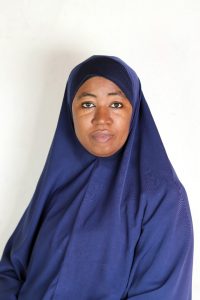
“Wearing the hijab by the Muslim female is the practical application of this constitutional provision. The Supreme Court in the case of MISS ASIYAT ABDULKAREEM and anor VS LAGOS STATE has upheld the use of the hijab as being protected by the provisions of Section 38(1) of the 1999 constitution (as amended), hence, a fundamental right.
These constitutional provisions and judicial pronouncements above have clarified this matter, such that even when there is a so called “law” or “regulation” in an institution for instance, prohibiting the use of hijab, the hijab still stands and that law will be null and void due to its inconsistency with the express provisions of the constitution.”
The convener, however, stated that despite these provisions, Muslim women and particularly the students are being harassed and victimized by some overzealous officers in both public and private sectors.
Violation of Supreme Court rulings on hijabs in schools
The coalition raised concerns over the continuous denial of Muslim students’ rights to use the hijab in some schools despite the landmark Supreme Court judgement.
Hajia Rofiah Tijani, the Amirah MSSN Lagos State Area Unit noted that some schools ignored and violated the apex court ruling affirming the rights of female Muslim students to wear the hijab in educational institutions, while some schools continue to enforce discriminatory practices.
According to her, Even when the hijab is allowed, some teachers and school principals still compel students to tuck in their hijabs, effectively restricting the full exercise of their constitutional rights.
“Some further hide under the garb of registration for examinations such as WASSCE and UTME to perpetrate this infraction. Despite the fact that the examination bodies have reiterated several times that hijabs can be worn for both registrations and in writing their exams. Our pupils in primary schools are also being harassed, particularly those from disadvantaged and less educated backgrounds where their parents feel helpless in asserting their rights.
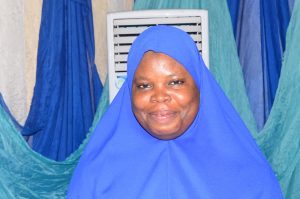
“It is also disheartening that when hijabi students are to be punished, the first punishment usually meted out to them for whatever reason is the removal of their hijabs. Has it ever been done to remove the blouse of a student just because she is to be punished? No!.”
She, however, commended the Lagos State Commissioner of Basic and Secondary Education Mr. Jamiu Tolani Alli-Balogun, and his team of Tutor Generals, including the Lagos State House of Assembly for acting swiftly to correct these infractions as soon as they were reported.
“While the Lagos State government under the leadership of Governor Babajide Olusola Sanwo-Olu has made significant strides in protecting the rights of Muslim women and girls, the same cannot be said for places like Ogun and Oyo states. The case of the Muslim parents V. The International School Ibadan comes to mind; despite the court judgement, the school has continued its discriminatory practises.”
The coalition urged the Ministry of Education to ensure compliance with this judgment by continuous sensitization of the school authorities by taking disciplinary actions against those who persist in violating students’ rights.
“We also urge parents, caregivers and guardians to continue to educate their wards on the proper use and etiquettes on the use of hijab and not to participate in trends that diminishes and goes contrary to the spirit and intent of the hijab,” she added.
Forceful removal of Hijabs during police arrests
Speaking on behalf of the coalition, Alhaja Ganiyat Omowumi Babalola, NASFAT Women Affairs Secretary, also called the attention of the world to the abuse of rights and forceful removal of hijabs by law enforcement officers during arrests, in either civil or criminal matters.
She said, “While there should be no arrest in civil matters, this has not been the case. This practice blatantly disregards the constitutional presumption of innocence until proven guilty and this amounts to an assault on the dignity and religious rights of Muslim women. It perpetuates trauma and fear among those targeted.”
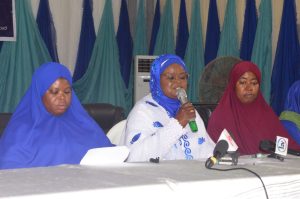
She cited a case of a young hijabi lady of about 20 years who was accused of theft along with her co-workers by their employer. According to her, “They were all arrested and she was forced to strip off both her hijab and jilbaab. As at this time her guilt or otherwise has not been determined by any court of law, yet she was not only punished but subject to dehumanizing treatment.”
Alhaja Babalola lauded the Nigerian police force for securing lives and property, urging them to respect suspects’ rights while carrying out their investigations in accordance to the constitution.
The coalition also called on the Nigerian Police Force and other law enforcement agencies to urgently adopt policies and provide training to officers on respecting religious expressions, including the right of Muslim women to maintain their hijabs during interactions with authorities.
Some discriminatory policies in the Nigerian Navy
The Amirah of FOMWAN, Lagos State, represented by Hajia Kudrah Ogunmuyiwa raised the inconsistency in the implementation of the use of hijabs as part of their uniforms, saying that it undermines the principles of fairness and respect for religious diversity within the armed forces.
Muslim News gathered that the Nigerian Navy in November granted the request of the Muslim Parents Forum to allow female Muslim students in Navy schools to wear the hijab in fulfillment of their divine right to Allah in according to the constitution.
Hajia Ogunmuyiwa used the medium to thank the Chief of Naval Staff, Vice Admiral EL Ogalla for recognising the rights of Muslim female students to wear the hijab.
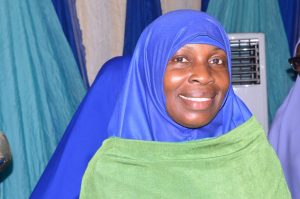
“Although the Nigerian Army and Air Force have already implemented the use of hijab as part of their uniforms, the Commandants of the Nigerian Navy schools continues to maintain policies that exclude this right.
“The Honourable Minister of State for Defence via a memo dated 7th, November 2024 had stated that the hijab be permitted, however, nothing has changed regarding the situation on ground.
“But this inconsistency undermines the principles of fairness and respect for religious diversity within the armed forces”, she noted.
The coalition called on the leadership of the Nigerian Navy to review its policies and align with the progressive practices of its sister institutions.
Maltreatment of Women in Niqab (Face Veil)
Speaking further, the Amirah FOMWAN Lagos, who was represented by Hajia Kudrah Ogunmuyiwa, stated that the maltreatment of Muslim women doesn’t end with the hijab, saying it has extended to those who wear the niqab (veil) as well.
Highlighting some of the challenges facing Muslim women in niqab, Hajia Ogunmuyiwa said, “While Muslim Women in hijab face these challenges, women who wear the niqab often face heightened discrimination and exclusion from public services.
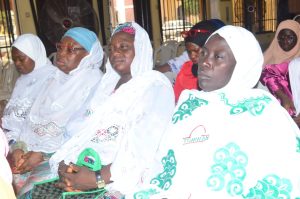
“Many are denied access to essential services or harassed in public spaces. Such treatment is contrary to the Nigerian constitutional guarantees of freedom of religion and equal treatment under the law.
“Very fresh in our minds is the issue of two women in niqab who were arrested by the police. We can also remember the issue of the niqab-wearing student that her veil was removed in class by a professor.
“Muslim women in niqab are constantly denied services that are their rights as Nigerians. Let it be clear that we are not asking for special treatments, rather we are asking for accommodations necessitated by our peculiarity.
A Muslim woman in niqab can have her identity verified, by another female law enforcement or security agent. The COVID-19 period has demonstrated to us how this can be done and simple accommodation or tolerance that can be made in situations like this.
The coalition therefore advocated for inclusive service delivery models that respect the choices of all women, including those who wear the niqab.
Our Demands and Recommendations
Speaking on behalf of the coalition, Modinat Sogunle from An-Nujabau Female Forum called on policymakers, educators, security agencies, and service providers to respect legal judgments, particularly the Supreme Court ruling on hijab rights.
She also demanded penalising institutions that flout the Supreme Court decision as well as an improved advocacy on the public rights on the matter through publicising of documents and memos sent to agencies on the issue.
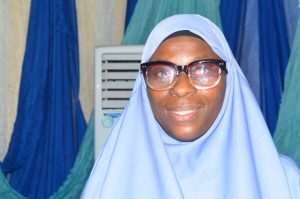
Speaking further, Hajia Sogunle said the law enforcement reform needs to be promoted to ensure inclusiveness in the military and military schools, adopting inclusive service policies, and respecting privacy in biometric procedures.
The coalition also called for equal access to public and private services for women in hijab and niqab without harassments, urging the Nigerian Navy to permit hijab-wearing as part of its official uniform and in line with global best practices for a more inclusive and tolerant society for Muslim women in Nigeria.
The Muslim women organisations also called for solidarity and support from Nigerians, urging individuals and organisations to participate in events to commemorate the day, even as they advocated for the protection of religious freedom.
Celebrating Muslim women of substance
The Muslim women groups also celebrated women of substance who have made the Ummah proud in their chosen professions despite societal challenges.
While speaking at the press conference, Hajia Riskiah Adam-Adedimeji, representing Amirah of The Criterion, Hajia Maryam Morenike Saba, mentioned some of the Muslim women in academics and public service, among other sectors.
Apart from those celebrated on pages 10 and 15, Hajia Adam-Adedimeji praised Miss Summaya Adefolu, who bagged first class honours in Actuarial Science while Miss Barakat Okikiola Tajudeen also clinched a first class in Cell Biology and Genetics — both from UNILAG.
“Muslimahs have been blazing the trail in professions, business and entrepreneurship. Ramah Aderinoye, a Hijabi is the CEO of Rashak Farms and Agro Allied Limited and has been thriving in a space where it is typically difficult for anyone to do so.
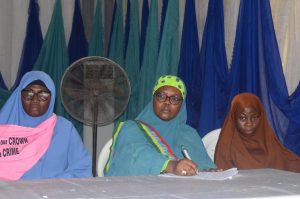
“Mutiat Sumbo Olagoke and Kaothar Olaniyan, who are outstanding business coaches with the “Egret Girls” and “Business the Way Allah Wants It” outfits, respectively, have shown that Muslim women can thrive while still upholding the *tenets* of their faith,” among others.
Challenges in biometric data collection
In her submission, Hajia Rahmotallahi Lawal Ajayi, representing Lagos Secretariat Community Central Mosque Women Affairs, talked about the challenges Muslim women face during biometric data collection, saying that the processes often require them to completely unveil, causing discomfort and violating their religious convictions.
She insisted that the law doesn’t require hijab-wearing Muslim women to bear their ears.
“Therefore, we respectfully call on the Director General, NIMC, Ms. Abisoye Coker-Odusote, to incorporate this in the retraining of agents.
The Hijab Coalition said Muslim women should not be asked to compromise their religious beliefs or have their fundamental human rights infringed upon during their biometric process.
Hajia Lawal Ajayi further recommends that government agencies adopt protocols allowing private biometric capture by female officials to protect the dignity and religious rights of Muslim women.
The 18 Muslim bodies
The 18 organisations include: Al-Muminaat – The Believing Women Organisation, Nasru- llahi- L- Fathi (NASFAT) Society, Hijab Rights Advocacy Initiative, Muslim Students’ Society of Nigeria ( MSSN) Lagos State Area Unit, Federation of Muslim Women Associations in Nigeria (FOMWAN) Lagos, The Criterion Lagos District, International Muslim Women Union (IMWU), Islamic Medical Association of Nigeria (IMAN).
Others were Lagos Secretariat Community Central Mosque, Muslim Public Affairs Center (MPAC), Akhwaat Muslimat Organization, Lagos, Muslim Rights Concern (MURIC), Guild of Muslim Professionals, Muslim Media Practitioners of Nigeria, Pure Heart Islamic Foundation, An-Nujabau Female Forum, Muslim Lawyers Association on Nigeria (MULAN), Izharul Haq Movement of Nigeria.
Faces at the conference
